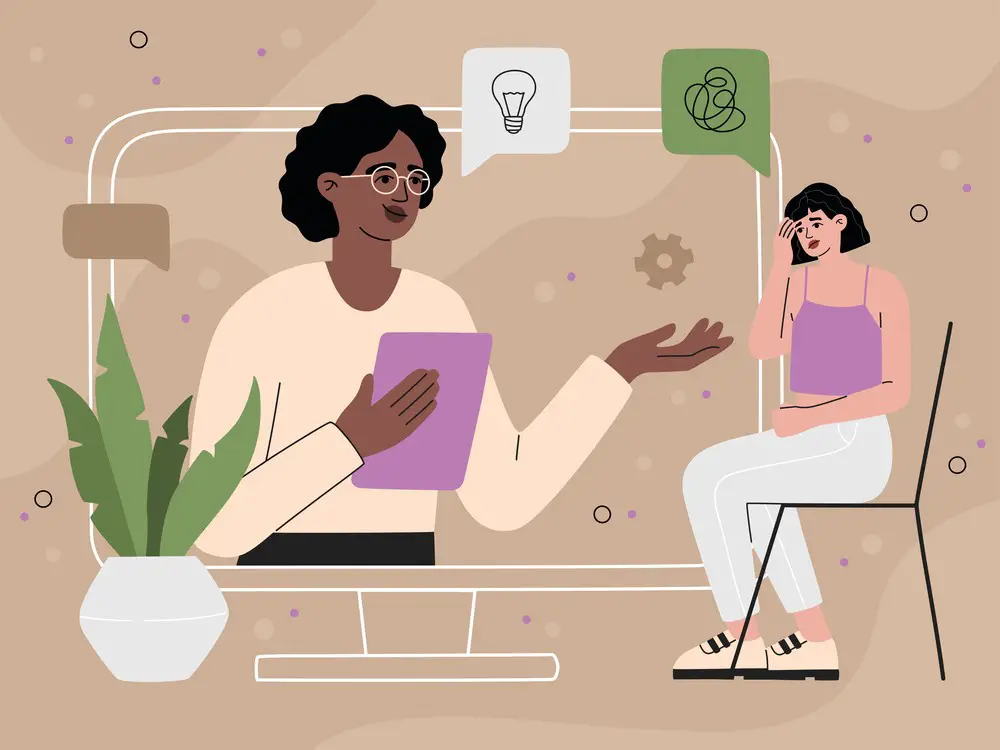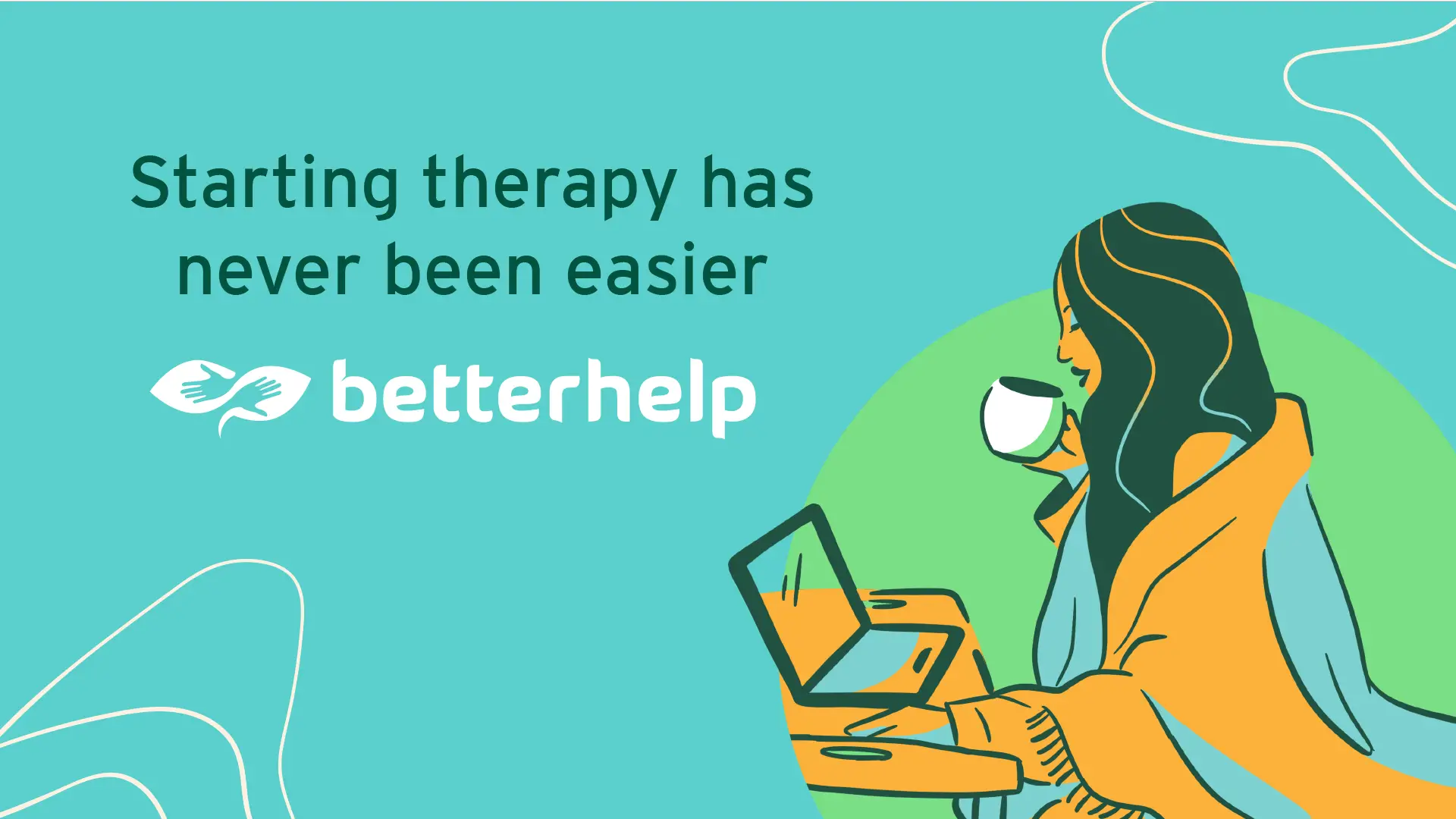Convincing someone to go to therapy can be a difficult conversation, especially if they are not comfortable discussing their feelings or are resistant to the idea. However, you must understand the benefits of therapy and respect your loved one’s feelings to make an informed decision about seeking help. You should also explain online therapy options and mental health resources available and discuss messaging-only options for those who may be on a budget or reluctant due to privacy concerns. Then, with patience and encouragement, you can convince someone close to you that going into therapy could significantly improve their well-being.
Table of Contents
Understand the Benefits of Therapy
Therapy is a powerful tool for managing mental health issues like anxiety, depression, and interpersonal relationships. It can help individuals gain insight into their feelings and behaviors, develop healthier coping skills, and learn how to manage stress better.
One of the main benefits of therapy is improved mental health. Through counseling sessions with a therapist or counselor, people can learn how to identify triggers that cause them distress and find ways to cope with those triggers healthily. Therapy also helps individuals become more aware of their thoughts and feelings to better respond to challenging situations.
Another benefit of therapy is increased self-awareness. Individuals who engage in regular counseling sessions can recognize patterns in their behavior that may contribute to negative emotions or unhealthy habits. With this newfound awareness, they can work on making changes that will lead to positive outcomes instead of repeating the same mistakes repeatedly.
Finally, therapy allows individuals to develop healthier coping skills for dealing with stressful situations or challenging emotions like anxiety or depression. Therapists often provide guidance on relaxation techniques such as deep breathing exercises or mindfulness meditation which have been proven effective at reducing stress levels quickly when practiced regularly. Additionally, therapists may suggest lifestyle changes such as getting adequate sleep each night or engaging in physical activity, which have both been beneficial for overall well-being when done consistently over time.
Overall, therapy offers many potential benefits, including improved mental health, increased self-awareness, and better coping skills – all essential components for living a happier life free from anxiety and insomnia symptoms.
The benefits of therapy can be far-reaching, so it’s essential to understand them before making a decision. Respect their feelings and recognize that the choice is ultimately up to them.
Respect Their Feelings
Respecting the feelings of those struggling with mental health issues is essential. It can be difficult for someone to open up about this kind of issue, and it is vital that they feel safe and supported when doing so. In addition, showing understanding and empathy toward their struggles will help them feel more comfortable discussing them.
When talking about therapy, it is crucial not to pressure someone into going if they do not want to. Everyone has different needs when managing stress and anxiety, so what works for one person may not work for another. Respect whether or not they choose therapy as an option; there are other ways that people can manage their symptoms without professional help, such as lifestyle changes, relaxation techniques, exercise, etc.
Explain online therapy options in a non-judgmental way if the person expresses interest in this type of treatment option. Online therapy provides many benefits, such as convenience (no need to travel), cost savings (many providers offer sliding scale fees), and anonymity (allowing clients greater privacy). Be sure to explain all aspects of online therapy, including any potential drawbacks like technology glitches or lack of physical contact with the therapist, which some people find helpful during sessions.
Talk about mental health resources available online and in your local community if the person expresses interest in seeking additional support outside of traditional counseling sessions, such as peer support groups or self-help books/websites/apps related to managing stress, anxiety, insomnia, etc. Ensure you provide accurate information on where these resources can be found so that they have access should they decide later on down the road that this would benefit them.
Discuss messaging-only options with individuals who may prefer text-based communication over phone calls or video chats due to initially feeling overwhelmed by speaking directly with a therapist. Messaging-only services allow users to communicate via text message with a licensed therapist at any time from anywhere while still receiving quality care from qualified professionals. In addition, this service will enable users flexibility when scheduling appointments while providing much-needed emotional support whenever needed.
Be patient and encouraging throughout this process since everyone’s journey towards better mental health looks different than others. Remind them often how proud you are of them for improving their well-being, no matter how small those steps might seem. Reassure them that whatever path they take – whether through traditional counseling, online therapies, messaging-only services, self-help books/websites/apps, etc., you will always be there offering unconditional love and support every step along the way.
It is essential to acknowledge how they are feeling and let them know you understand, as this can help create a safe space for open dialogue. In addition, offering support is critical in helping someone decide to seek therapy.
Offer Support
Knowing how to support someone struggling with anxiety or insomnia can be challenging. The most important thing you can do is let them know that you are there for them and will help them in whatever decision they make. This could mean providing emotional support, such as listening without judgment or offering advice if asked. It could also mean helping with practical tasks, like running errands or finding resources for therapy options.
No matter what kind of help you offer, it’s essential to respect their feelings and give them the space they need to work through their issues on their terms. Encourage your loved one to take care of themselves by getting enough sleep, eating healthy meals, exercising regularly, and engaging in activities that bring joy into their life. Offer positive reinforcement when they progress toward managing their anxiety or insomnia symptoms.
Explain the different types of therapy available so your loved one can better understand all the options available before deciding which kind of treatment would best suit their needs. Make sure they know online therapy options and messaging-only services where mental health professionals guide text messages rather than face-to-face sessions over video chat platforms like Skype or Zoom.
Talk about other mental health resources that may be helpful, such as hotlines and crisis centers where people can get immediate assistance during times of distress; local community organizations that provide counseling services at low cost; online forums where people share experiences related to anxiety and insomnia; self-help books written by experts in the field, etc.
Be patient and encouraging throughout this process, as recovery from these conditions takes time. However, it is possible with proper care and support from family members and friends who are willing to listen without judgment while respecting personal boundaries set by those affected by these illnesses.
Reaching out to someone struggling with anxiety or insomnia can be an essential first step in helping them find relief. By offering support, we can start a conversation about therapy options and how online services might best fit their needs.
Explain Online Therapy Options
Online therapy can be an excellent option for those struggling with anxiety or insomnia. It offers the same benefits as traditional in-person therapy but without the need to leave your home or office. Online therapy is also more affordable and anonymous than traditional sessions, making it an attractive option for many.
One of the main advantages of online therapy is its accessibility. You don’t have to worry about finding a therapist near you, as plenty of options are available online worldwide. This means that you can find someone who specializes in treating anxiety and insomnia no matter where you live. Additionally, since most online therapists offer video conferencing services, you don’t even have to leave your house if you don’t want to!
Another benefit of online therapy is anonymity. Many people feel uncomfortable discussing their mental health issues with someone they know personally or in public settings like doctor’s offices and waiting rooms. With online therapy, however, all conversations take place through secure messaging platforms so that your identity remains private throughout treatment sessions.
Finally, one significant advantage of choosing an online therapist is cost savings; many providers charge lower rates than traditional therapists due to reduced overhead costs associated with virtual care instead of face-to-face meetings at physical locations such as clinics or hospitals. Plus, some insurance companies may cover part or all of the cost depending on your policy details and provider network availability—so check before signing up!
Overall, when considering whether online therapy might be right for them, it is essential for individuals suffering from anxiety or insomnia to weigh the pros and cons before making any decisions about treatment plans moving forward. Access to these types of resources could provide much-needed relief during difficult times.
Online therapy can be an excellent option for those unable to attend traditional in-person sessions. It provides an accessible, convenient way to get the help you need. Now let’s talk about mental health resources available to support your journey towards better mental health.
Talk About Mental Health Resources
Mental health resources are essential to managing anxiety and other mental health issues. Unfortunately, knowing where to turn for help can be challenging, but many options are available.
Hotlines: Hotlines provide a safe space to discuss mental health issues without fear of judgment or stigma. Most hotlines offer 24/7 support and allow individuals to speak with trained professionals who can advise and guide them on managing their symptoms.
Online Support Groups: Online support groups are another excellent resource for those struggling with anxiety or insomnia. These groups offer a platform for individuals to connect with others in similar situations, share experiences, ask questions, and get emotional support from peers who understand what they’re going through.
Therapy Services: Therapy services provide one-on-one counseling sessions focusing on understanding the root cause of anxiety or insomnia and developing coping strategies tailored specifically to each individual’s needs. Therapists may also recommend lifestyle changes such as regular exercise or meditation that can help reduce stress levels over time.
Medication Management: Medication management is often recommended when other treatments have not successfully reduced symptoms of anxiety or insomnia. A doctor will work closely with patients throughout the process, monitoring progress while adjusting medications as needed until desired results are achieved safely and effectively.
Self-help books and resources can be beneficial in providing information about different types of therapies available and tips on how best to manage stress levels at home without professional assistance if the patient desires. Additionally, these materials may include exercises designed specifically for relaxation techniques, which could be beneficial when dealing with anxious thoughts or difficulty sleeping at night due to insomnia.
Talking about mental health resources can be a great way to start the conversation about therapy and help someone feel more comfortable taking that step. Now, let’s discuss messaging-only options for treatment that provide an even more convenient and accessible way to get help.
Discuss Messaging Only Options
When it comes to therapy, there are many options available. Messaging-only options can be excellent for those who are budget conscious or reluctant to speak with a therapist in person or over the phone.
Messaging-only therapy is conducted entirely through text messages and emails between you and your therapist. This type of therapy allows you to communicate with your therapist from anywhere at any time, making it more convenient than traditional face-to-face sessions. It also eliminates the need for travel time and costs associated with going to an office visit.
The messaging option also offers privacy since all communication is done online rather than in public settings like doctor’s offices or hospitals. As a result, you can feel secure knowing that your conversations will remain confidential and private, even if you choose not to use encryption technology when sending messages back and forth with your therapist.
Another benefit of messaging-only therapy is that it provides more flexibility in scheduling appointments compared to traditional face-to-face sessions, requiring both parties to be simultaneously present at the same place. With messaging-only therapy, you can send messages whenever it works best for you without worrying about coordinating schedules with another person’s availability or missing an appointment due to unexpected circumstances such as traffic delays or illness.
It is important for people considering this therapy option to understand its limitations. While messaging may provide convenience, some issues cannot be adequately addressed through text alone because nonverbal cues such as facial expressions and body language play an important role in therapeutic conversations that cannot be conveyed via text alone. Additionally, if medication management is part of the treatment plan, then regular visits must still take place so that medications can be monitored by a medical professional on-site.
Finally, keep in mind that different therapists have different policies regarding their services, so make sure to ask questions about how they handle their clients’ needs through messaging-only options before committing yourself to this treatment.
If messaging-only options are not enough to help someone with their anxiety or insomnia, then it is essential to be patient and encouraging when discussing the possibility of therapy.
Be Patient & Encouraging
Being patient and encouraging when helping someone with anxiety or insomnia is essential. Taking the time to understand their feelings and provide support can make a huge difference in their recovery journey.
When offering advice, it’s essential to remember that everyone’s experience is different. Acknowledge their emotions without judgment and let them know that you are there for them no matter their decision. Encourage them to take things one step at a time and remind them that progress takes time.
Explain the online therapy options, such as video conferencing, messaging-only services, or audio-only sessions. Letting your loved one know about these options can help reduce some of the stress associated with seeking professional help since they don’t have to leave home if they’re not comfortable doing so yet.
Talk about mental health resources like hotlines or helplines that offer free counseling services over the phone or online chat rooms where people can connect with others who may be going through similar struggles. Access to these types of outlets could be beneficial for those who need additional support outside therapy sessions.
Be patient throughout this process; recovery from anxiety or insomnia isn’t an overnight fix but a gradual process that requires dedication and perseverance on both sides – yours and theirs. Encourage whenever possible; remind your loved one that you believe in them even when times get tough, and celebrate small victories together.
Why is it Difficult for Someone to Seek Professional Care?
It can be difficult for someone to seek professional care, even when necessary. Many people are reluctant to ask for help due to fear of judgment or embarrassment. They may also feel like they should be able to handle their issues independently and don’t want to admit that they need help. Other barriers include financial concerns, lack of access to resources, and stigma associated with mental health issues.
For men, in particular, there can be a sense of pride or machismo that prevents them from seeking out therapy or other forms of support. This is especially true if the issue involves substance abuse or addiction, as many men feel ashamed about having these problems and don’t want anyone else to know about them.
In addition, some men may not understand how therapy works and think it will involve talking about feelings that make them uncomfortable. They might also believe that admitting they have an issue means they are weak or inadequate in some way which can lead them to avoid getting help altogether.
Finally, cultural norms around masculinity could make it difficult for a man to reach out for assistance even if he knows he needs it. For example, in certain cultures, there is a strong emphasis on being independent and self-reliant which can prevent men from asking for help even when it would benefit them greatly in the long run.
Tips on Ways to Get Your Man to Go to Therapy
It can be difficult to convince your man to go to therapy, but it is vital for his mental health. Showing him that you care about his well-being and are willing to support him through the process can help make it easier. Here are some tips on ways to get your man to go to therapy:
Be understanding and supportive of any concerns he may have. Let him know that you understand how he feels, such as if he’s afraid of stigma or ashamed of attending therapy. Demonstrate your love and concern for his well-being in a non-judgmental and reassuring way.
Encourage him by offering an experiment – suggest going one time just as an assessment or evaluation session, without having any commitment beyond that first appointment. This could be less intimidating than asking for a long-term commitment right away.
Let him know what type of treatment might work best for his situation. Hence, he has realistic expectations about the length of time involved with different types of therapies (e.g., cognitive behavioral therapy typically involves a set number of sessions). Reassure him that this isn’t something permanent – it’s only temporary!
Offer yourself as moral support – let him know you will accompany him when needed if he agrees to try out therapy at least once; knowing someone else will be there with them can often make things feel more manageable and less daunting overall.
Finally, arm yourself with knowledge beforehand so you’re prepared should arguments arise regarding specifics like cost or other barriers standing in the way of getting treatment – being informed means being better equipped for these conversations!
FAQs
How do I convince him to go to therapy?
Therapy can help people with anxiety and insomnia learn how to manage their symptoms healthily. It can also provide them with tools and techniques for coping with stressors and help them gain insight into their thoughts and behaviors. Ultimately, therapy offers growth and healing opportunities, which may lead to improved mental health overall. Encourage your loved one by emphasizing the positive aspects of seeking professional help; remind them that you are there for support throughout the process.
How do you suggest to someone they need therapy?
It is essential to recognize when therapy may be beneficial. For example, speaking with a mental health professional may be helpful if you are struggling with anxiety or insomnia. They can guide and support you in developing coping strategies to help you manage your symptoms. A therapist can also help identify the underlying causes of your distress and establish a plan for addressing them. It is important to remember that seeking help does not mean something is wrong with you; instead, it demonstrates strength and courage in improving your well-being.
What motivates people to go to therapy?
People may be motivated to go to therapy for a variety of reasons. For example, many people seek help when struggling with anxiety, depression, or other mental health issues that can interfere with their daily lives. Others may want to gain insight into themselves and better manage stress and difficult emotions. Additionally, some individuals may need support navigating life transitions such as job loss or divorce. Therapy can provide an opportunity for self-exploration and growth while also guiding how to cope with challenging situations. Ultimately, the decision to seek therapy is personal and based on individual needs; however, it can be beneficial in helping people achieve greater emotional well-being.
How do you help someone who doesn’t want help?
It can be challenging to help someone who doesn’t want help, but it is possible. The first step is to listen and understand their feelings without judgment or criticism. Next, offer support and understanding by letting them know that you are there for them no matter what. Third, encourage them to seek professional help if they feel comfortable doing so, as this may provide more effective relief than self-help strategies alone. Finally, remind the person that seeking help does not mean they are weak or inadequate; instead, it shows strength in improving their mental health and well-being.
Conclusion
Therapy can be a great way to help manage anxiety and insomnia, but it is essential to respect the feelings of those you are trying to convince. Offer your support and explain the options available for online therapy that may make it easier for them, such as messaging only or budget-friendly options. Talk about mental health resources they can access and be patient and encouraging throughout the process. Ultimately, understanding why therapy could benefit them is key in helping someone decide whether or not they want to pursue this option. With patience, understanding, and support, you can help convince someone to go to therapy so that they can take steps toward managing their anxiety or insomnia more effectively.
Are you feeling overwhelmed and struggling to cope with life’s demands? First, it is essential to recognize when stress has become too much for you. Then, talking to a professional can help provide the support and guidance needed to get back on track. In addition, therapy can be invaluable, providing coping strategies and helping build resilience for future challenges. So don’t wait any longer; take control of your mental health today by finding the right therapist that fits your needs!
- New Florida Law Cracks Down on Misuse of Emotional Support Animals - February 12, 2024
- The Stress-Free Path to Mastering Conversations: Essential Techniques Unveiled - February 12, 2024
- The Burnout Epidemic: Why We’re All Feeling Overwhelmed and How to Cope - February 9, 2024
This site contains affiliate links to products. We will receive a commission for purchases made through these links.










